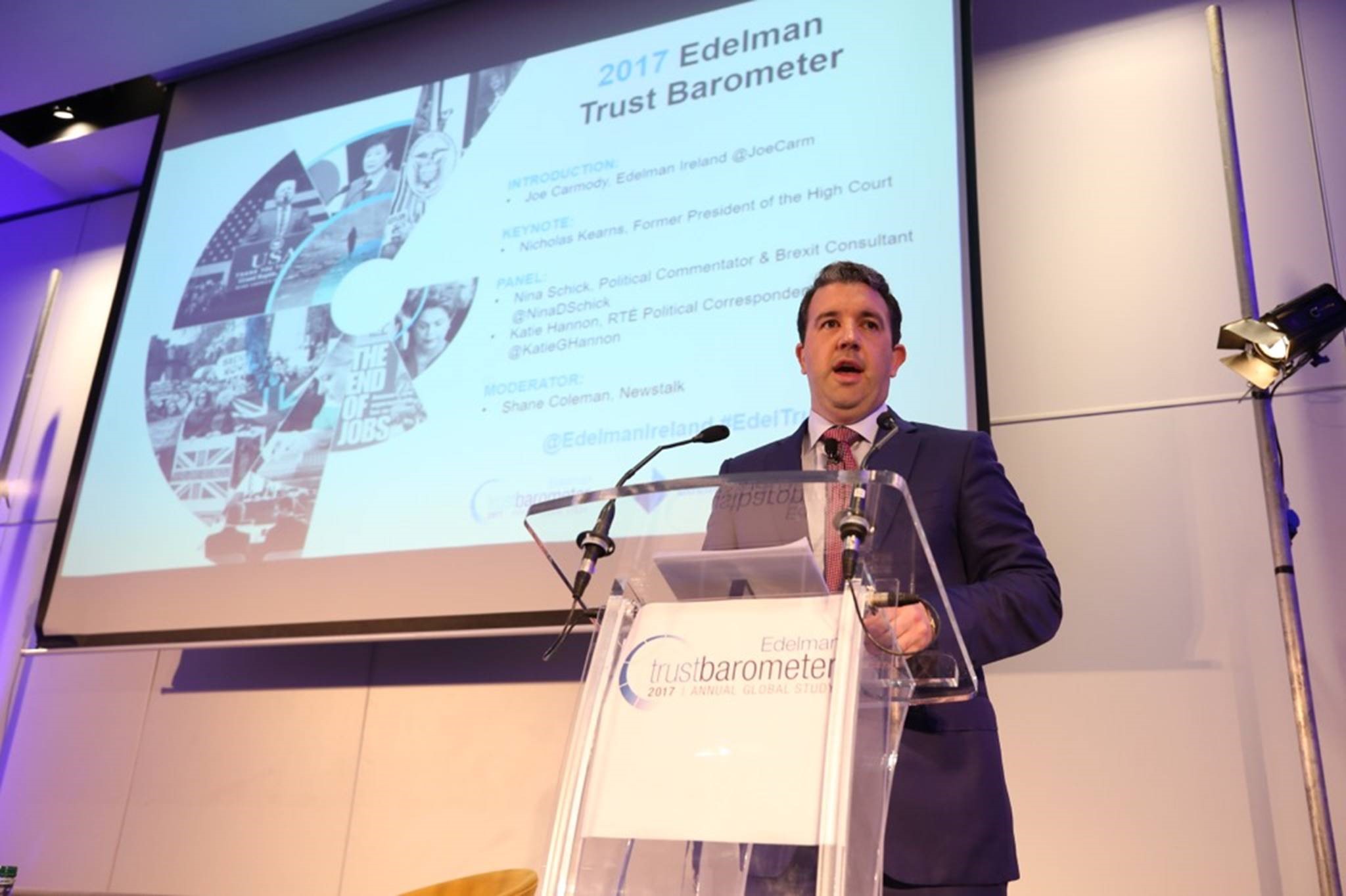
The 2017 Edelman Ireland Trust Barometer reveals a crisis in trust levels across the institutions of government, business, media and NGOs.
The Barometer, which was published this week shows that trust in media fell from 39% to 29% and media is now seen as the least trusted institution in Ireland. Trust in Government in Ireland remained at the same level as the previous year on 32%. Trust in business and NGOs dropped and they are now only 2 percentage points apart, at 41% and 43% respectively.
According to Edelman, between 2012 and 2017, media as an institution saw a six percent drop. Traditional media (56%), the most trusted media outlet, however, has seen two years of growth in trust levels. Online only media saw a seven point drop on 2016 levels from 48% to 41%.
The Trust Barometer found that 59% of respondents in Ireland believe that the system has failed them — that it is unfair and offers little hope for the future — while only 15% believe it is working, and more than one-quarter are uncertain.
The research reveals that 55% of the top income quartile, 59% of third level educated and a majority of the well-informed (56%) believe the system has failed. The Barometer showed that populist issues are fueled by a lack of trust in the system as well as both economic and societal fears. Countries coupling a lack of faith in the system with deep fears, such as the U.S., U.K. and Italy have seen the election of Donald Trump, the Brexit vote and the failed Italian referendum.
The research finds that credibility of leaders in Ireland is also in peril. CEO credibility dropped 16 points in Ireland from the previous year, to 27% which now puts it on par with government officials and boards of directors as the least credible spokespeople. The most credible spokespeople in Ireland are academic experts (61%), technical experts (58%) and a person like yourself (54%).
Speaking at the unveiling of the findings, Joe Carmody, managing director of Edelman Ireland said: “2016 and early 2017 has been a period of almost unimaginable upheaval. People in multiple countries rejected their government’s leaders or policies, demonstrating their dissatisfaction and distrust by electing reform or outsider candidates, voting to leave trading blocs, or refusing to support treaties negotiated by their governments. The mainstream media lost audience as people turned to social media and search for information, advertising results were questioned, and the spectre of fake news has left the public wondering what is true anymore.
“The findings of the 2017 Trust Barometer help provide a roadmap for understanding the forces that influenced the tide of populist action that swept across many western-style democracies. Ireland must consider itself on notice for the rise of populism. Once the majority of the population believes that the system is no longer serving them, they also become vulnerable to the fears that can fuel anti-establishment actions.”
He says that the cycle of distrust is magnified by the emergence of a media echo chamber that reinforces personal beliefs while shutting out opposing points of view. Respondents in Ireland favour search engines (53%) over human editors (47%) and are more than 2.5 times more likely to ignore information that supports a position they do not believe in. Some 49% stated that they never or rarely change their position on important social issues.
Of the four institutions, business is viewed as the only one that can make a difference in the community it operates in. 68 percent of respondents agree a company can take specific actions to both increase profits and improve economic and social conditions in the community where it operates. However, there are worries amongst the workforce in Ireland that business must respond to. People in Ireland expressed worries about losing their jobs due to the lack of training and skills provided to them (49 percent), foreign competitors (44 percent) and automation (37 percent).




















